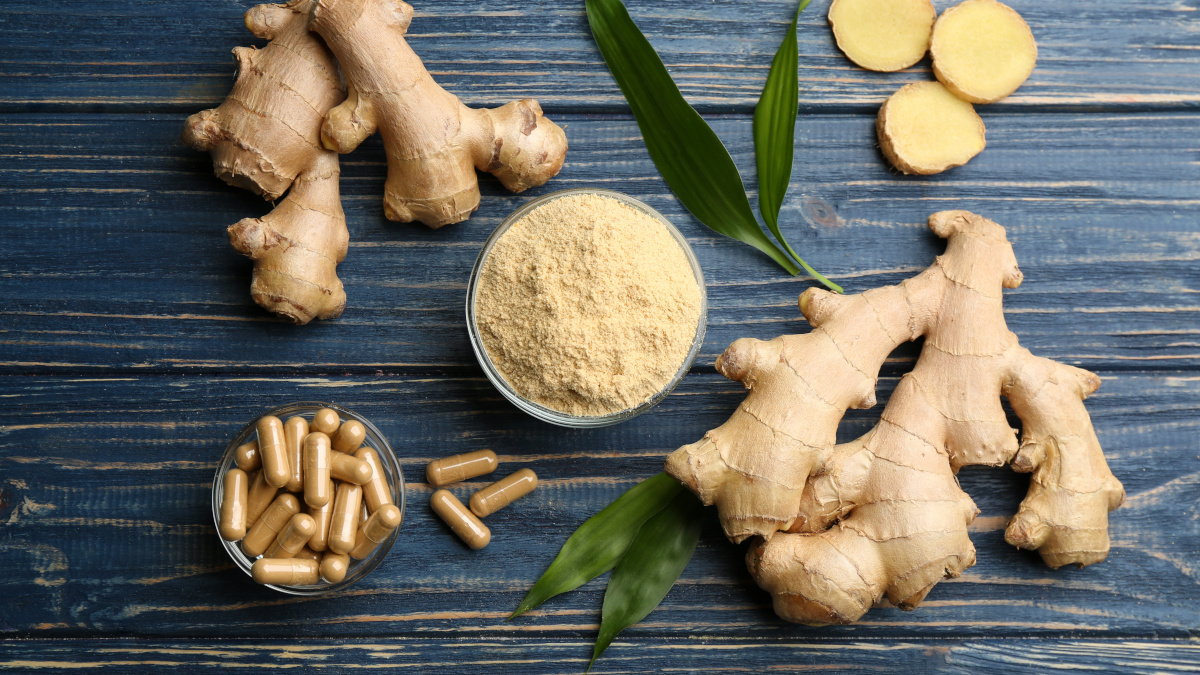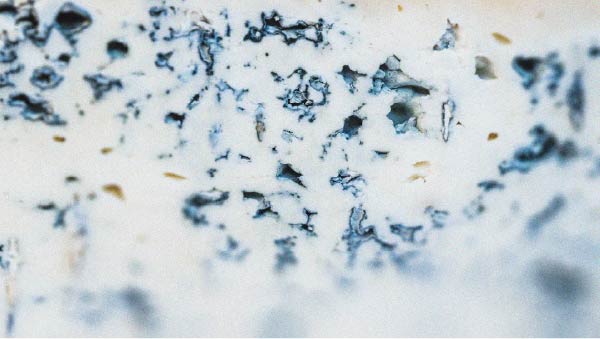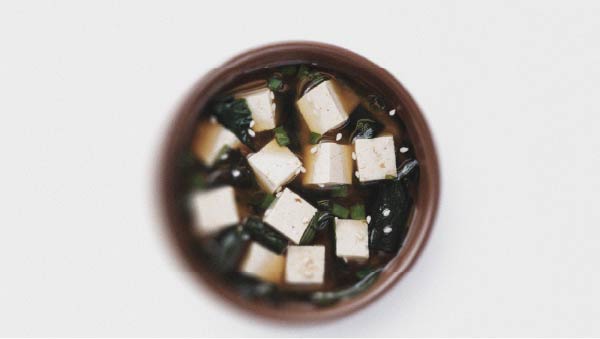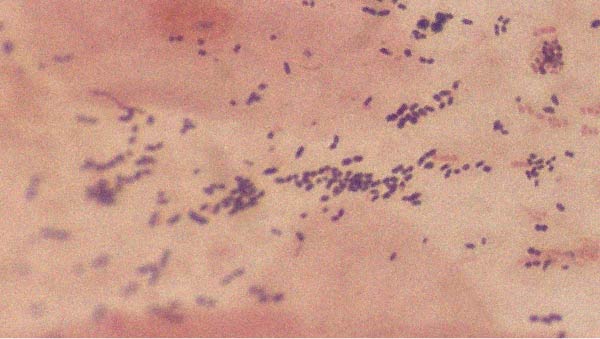Why take a ginger supplement?
A key ingredient in Asian cooking, ginger has also been used in traditional Chinese medicine for thousands of years. What are its benefits? How should you use it? Read on to find the answers to these and other questions.

What exactly is ginger?
Ginger (Zingiber officinale) is a tropical perennial primarily cultivated in its native India, as well as in China.
It is normally the rhizomes that are used. These are the plant’s underground roots which have a distinctive fragrance and spicy flavour.
Ginger is a spice used in many recipes across the globe. It is found in drinks such as ginger ale, in curries, and in cakes, as well as in the famous gingerbread.
A medicinal root prized by many cultures
Ginger has long been used in Chinese medicine, particularly for its direct action on certain meridians.
It is also regarded as a ‘universal medicine’ in Ayurveda (India’s traditional system of medicine).
The Kama Sutra, the 6th century Indian text which describes various sexual practices, contains many references to ginger’s specific properties. In the same vein, the Comtesse du Barry (the mistress of Louis XV) was known to have given ginger to her lovers. We’ll return to ginger’s health benefits a little later.
Composition of Zingiber officinale: what exactly is in ginger?
Ginger contains 60% starch, protein, fats, polysaccharides, essential oils and resin (1).
Its spicy taste, which produces a hot feeling in the mouth, comes from the root’s phenols: gingerol, zingerone, paradol and shogaol.
As the most biologically active of these phenols, gingerol is primarily responsible for ginger’s beneficial effects(2).
Health benefits of ginger
Widely recommended by naturopaths, ginger helps to:
- maintain the immune system(3) ;
- support healthy digestion(4) ;
- maintain a healthy heart (5) and lungs (6) ;
- regulate metabolism (7) ;
- support energy and vitality (8) ;
- and promote well-being when travelling(9).
In addition, ginger contains antioxidants (10), the molecules that reduce the activity of the infamous free radicals which cause premature ageing of our cells.
How should you consume ginger?
Ginger can be consumed in a number of ways:
- fresh. If you like its distinctive taste, grate 1-2cm of ginger root and add to your cooked dishes and salads;
- in a tea (either hot or iced depending on the season). Grate 5g of ginger and allow to infuse for 10 minutes in a cup of water. You can add a little honey to sweeten its spicy taste, and drink 2-4 cups a day;
- in powder form, also for mixing with a drink;
- pickled (this is invariably served as an accompaniment to raw fish dishes in Japan) ;
- preserved, to either enjoy as a sweet or to add to desserts, etc.
Ginger supplements: what are the benefits? Which should you choose?
There are many reasons why ginger supplements are popular:
- some people don’t like the taste of ginger
- or the burning tongue sensation it produces;
- or simply want to significantly increase their intake of gingerol, the main active ingredient in ginger, for medicinal purposes.
Indeed, you can take a ginger supplement to naturally support your digestion, immune system, respiratory tract, cardiac health and vitality.
When buying a ginger supplement, make sure it has a high gingerol content (such as the product Super Gingerols, standardised to 20% gingerols), offering guaranteed efficacy.
Synergistic formulations: the best supplements with a high ginger content
You’ll also find ginger alongside other ingredients in synergistic formulations:
- because of its benefits for respiratory health, ginger is often combined with Terminalia and Piper ;
- it’s also available, with other plant extracts, in certain natural alkaline formulations(such as Alkaline Formula);
- and last but not least, ginger features in Ayurvedic potions (such as Adaptogenic Potion, which contains no less than 10 key plants and mushrooms including ginger, holy basil and reishi.)
References
- Bruneton, J., Pharmacognosie - Phytochimie, plantes médicinales, éd., revue et augmentée, Paris, Tec & Doc - Éditions médicales internationales, , 1288
- Mao QQ, Xu XY, Cao SY, et al. Bioactive Compounds and Bioactivities of Ginger (Zingiber officinale Roscoe). Foods. 2019;8(6):185. Published 2019 May 30. doi:10.3390/foods8060185
- Sultan MT, Butt MS, Qayyum MM, Suleria HA. Immunity: plants as effective mediators. Crit Rev Food Sci Nutr. 2014;54(10):1298-308. doi: 10.1080/10408398.2011.633249. PMID: 24564587.
- Anh NH, Kim SJ, Long NP, et al. Ginger on Human Health: A Comprehensive Systematic Review of 109 Randomized Controlled Trials. Nutrients. 2020;12(1):157. Published 2020 Jan 6. doi:10.3390/nu12010157
- Bode AM, Dong Z. The Amazing and Mighty Ginger. In: Benzie IFF, Wachtel-Galor S, editors. Herbal Medicine: Biomolecular and Clinical Aspects. 2nd edition. Boca Raton (FL): CRC Press/Taylor & Francis; 2011. Chapter 7.
- Mao QQ, Xu XY, Cao SY, et al. Bioactive Compounds and Bioactivities of Ginger (Zingiber officinale Roscoe). Foods. 2019;8(6):185. Published 2019 May 30. doi:10.3390/foods8060185
- Wang J, Li D, Wang P, Hu X, Chen F. Ginger prevents obesity through regulation of energy metabolism and activation of browning in high-fat diet-induced obese mice. J Nutr Biochem. 2019 Aug;70:105-115. doi: 10.1016/j.jnutbio.2019.05.001. Epub 2019 May 21. PMID: 31200315.
- Mashhadi NS, Ghiasvand R, Askari G, Hariri M, Darvishi L, Mofid MR. Anti-oxidative and anti-inflammatory effects of ginger in health and physical activity: review of current evidence. Int J Prev Med. 2013;4(Suppl 1):S36-S42.
- Bode AM, Dong Z. The Amazing and Mighty Ginger. In: Benzie IFF, Wachtel-Galor S, editors. Herbal Medicine: Biomolecular and Clinical Aspects. 2nd edition. Boca Raton (FL): CRC Press/Taylor & Francis; 2011. Chapter 7.
- Mashhadi NS, Ghiasvand R, Askari G, Hariri M, Darvishi L, Mofid MR. Anti-oxidative and anti-inflammatory effects of ginger in health and physical activity: review of current evidence. Int J Prev Med. 2013;4(Suppl 1):S36-S42.
3 Hours
Super smart is really…super !
I would like to share my excellent experience with the company’s fast and efficient customer service. Even though I was calling from abroad, I was able to reach them relatively quickly. They responded to all my emails promptly and kept me consistently informed about the status of my order. When I needed assistance correcting a mistake I had made with my order, Ms. Lorie handled the issue immediately and very professionally. Thanks to their support and efficiency, I received my Super Smart products in Greece much faster than expected. Thank you very much for the outstanding service!
Kazanti Kleopatra
3 Days
Ordering and delivery is easy and fast
Ordering and delivery is easy and fast
Peter
5 Days
Simple and quick :-)
My order was delivered quickly, and I'm satisfied with the product! It was lot less fuss compared with some things I've ordered.
DEL Jacqueline
5 Days
Excellent quality products & customer…
Excellent quality products & customer service & care …thank you!
Giovanna Escalera
6 Days
great experience
Easy ordering, fast deliver, very professionally.
Natasa
10 Days
this company and its products are…
this company and its products are perfect: I have been their customer for three years , prices are reasonable for the high quality they offer , the products are of very good quality not just plainly "normal" , delivery is quite fast. we are very satisfied with them.
Gabriel Diacakis
10 Days
TOP service TOP products will buy again…
TOP service TOP products will buy again and again
PINOTTI Giorgio
12 Days
Trustworthy company with tested products
Trustworthy company with tested products
Trusted
17 Days
Efficiency and speed
Efficiency and speed
Cuccie
18 Days
GOOD BRAND IN FOOD COMPLEMENTS
GOOD BRAND IN FOOD COMPLEMENTS - SERIOUS WITH GOOD DOCUMENTS AND DETAILS SCIENTIST. AND SERIOUS HONNEST COMMERZIALISATION. I HAVE TRUST IN THEIR PRODUCTS.
FENOGLIO Guy
20 Days
Very good experience
Very good experience, the products arrived in time, in perfect condition and are good quality. Thank you.
GABI TIRCOCI
25 Days
very good expereince
very good expereince
Jelena Đaković
26 Days
Very good products.
Very good products.
Agnes BENDSAK
28 Days
Just OK
Just OK, ordering from company for many years and being safisfied
Lynn Mae
28 Days
Recomendo
Produtos encomendados são recebidos atempadamente e de acordo com o anunciado! Muito satisfeita!
Carla Sofia
of experience
your money back
##montant## purchase




